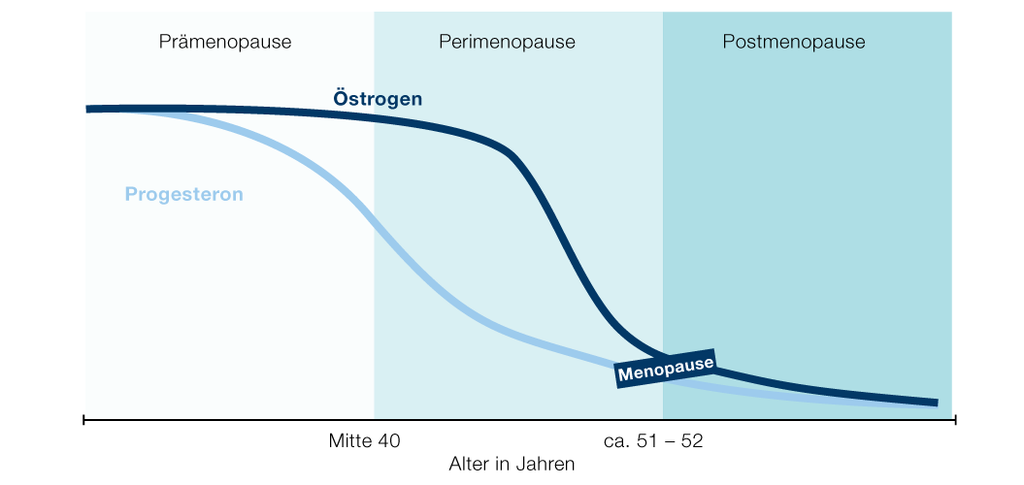
Sleep disorders in menopause
Many women suffer from difficulty falling asleep, hot flashes and sleep disorders in the years surrounding menopause. We explain here why sleep suffers when hormone metabolism is out of balance and what women can do to get a good night's sleep even during menopause.
Table of contents
- What is menopause?
- What happens during menopause?
- Common complaints during menopause
- sleep disorders during menopause
- Tips for Sleep During Menopause
- Conclusion
1. What is menopause?
The menopause is a normal phase of life for every woman, which marks the end of the fertile period. During the menopause, major changes in the hormonal balance take place and the female cycle comes to an end with the onset of the so-called menopause. The menopause is therefore typically referred to as the last years before, the year during and after the menopause.
The first signs of menopause usually appear between the ages of 40 and 50 and can last for several years. However, the onset and duration vary from woman to woman, as do the symptoms that occur. While some women experience no physical or psychological changes, others suffer from intense symptoms and severe sleep disorders.
2. What happens during menopause?
During menopause, the female hormone production begins to change, particularly the hormones estrogen and progesterone. The body's own production of these decreases and eventually stops completely. The hormonal changes are often associated with noticeable physical changes. The hormonal imbalance leads to irregular cycles and even to the cessation of menstruation (menopause), and other symptoms such as hot flashes, sleep disorders and mood swings can also occur.

The sex hormones estrogen and progesterone are involved in numerous metabolic processes in our body and do not only influence the female cycle. In addition to its important role in regulating the cycle, progesterone has a positive effect on bone formation, stimulates the metabolism, regulates digestion and has a calming effect on the nervous system and the psyche. Estrogen inhibits the breakdown of bone mass, supports a healthy metabolism, has an antidepressant effect and contributes to healthy nerve and brain function. During the menopause, the female body must first get used to the new hormonal conditions.
3. Common complaints during menopause
About two thirds of women suffer from various mild to severe symptoms during menopause. Hot flushes, sleep disorders and mood swings are considered to be the most common and well-known symptoms. In fact, more than 80% of women before menopause are affected by hot flashes and up to 60% suffer from significant sleep disorders.

It is believed that fluctuations in hormone levels disrupt the body’s thermoregulation, as both estrogen and progesterone are involved in regulating cardiac activity and body temperature This makes it easier for people to break out in sweats and experience spontaneous sensations of heat, which can also occur at night and further disturb sleep.
There may also be an increase in headaches, constipation, joint and muscle pain, loss of libido or an increased feeling of exhaustion, and psychological symptoms such as inner restlessness, anxiety and depressive moods are also possible.
4. Sleep disorders during menopause
Every second woman suffers from sleep problems during menopause or sleep disordersThe changes in hormone metabolism can also directly affect sleep patterns and quickly lead to problems falling asleep and staying asleep. The low estrogen level not only promotes hot flashes or night sweats, but also reduces the melatonin productionThe body’s own production of the sleep hormone decreases anyway increasing age slightly, so that the deep sleep phases are naturally shorter and the depth of sleep is less. Due to the lack of progesterone, its relaxing and sleep-promoting effect is also lost.
And that’s not all: For many women, menopause is also a time of personal or professional upheaval. This is often the case stress and everyday worries, which put a strain on the psyche and prevent them from getting enough rest. Many women then wake up more often at night and cannot get back to sleep straight away. All of these factors mean that women in the menopause suffer more quickly from stress and mood swings and their sleeping habits can be significantly disturbed.
5. Tips for sleep during menopause

In order to get enough restful sleep, women in menopause should pay attention to good sleep hygiene and a healthy diet. To improve your mood during the day and thus promote sleep in the evening (you can find more information on this in this Article), some exercise and plenty of daylight should be integrated into everyday life. At the same time, however, enough time should be taken for rest and relaxation. With relaxing evening routines, you can find peace more easily in the evening so that your body and mind can prepare for sleep. In our sleep magazine you will already find many tips for an all-round healthy sleep.
The fact that the body is undergoing a transition and reacts sensitively to the hormonal changes is a completely natural process and should not make any woman feel bad. Herbal relaxants or sedatives can help to alleviate the symptoms and improve well-being. However, if the symptoms become too severe or a permanent burden, medical advice should definitely be sought.
6. Conclusion
-
During menopause, the female hormonal balance begins to change and the production of the sex hormones estrogen and progesterone decreases.
-
About two-thirds of women suffer from mild to severe symptoms during menopause, such as hot flashes, sleep disorders and mood swings.
-
Good sleep hygiene, a healthy diet, plenty of exercise in daylight, relaxing evening routines and herbal sedatives help to support restful sleep.
Best regards and see you soon!



Leave a comment
This site is protected by hCaptcha and the hCaptcha Privacy Policy and Terms of Service apply.